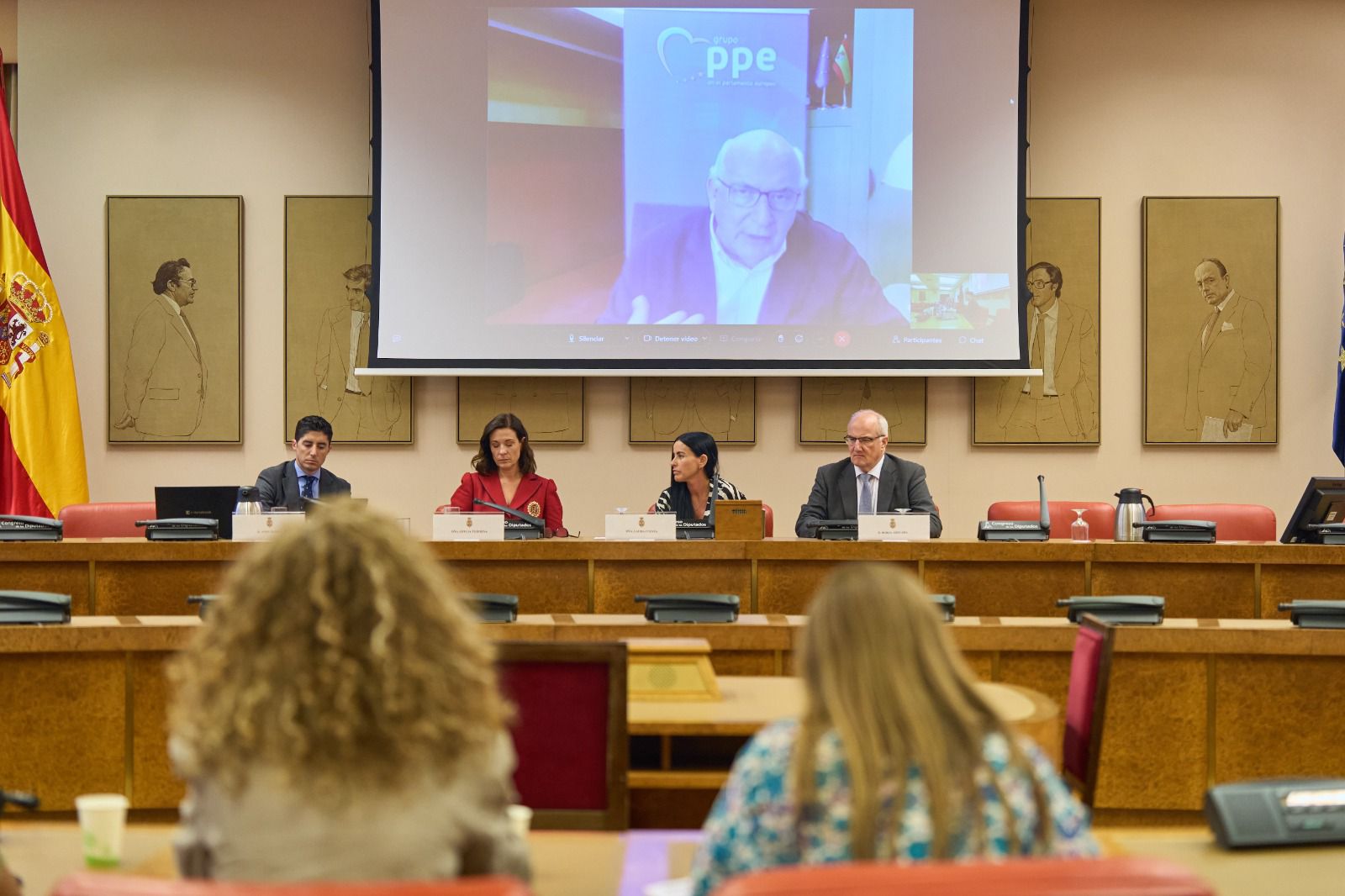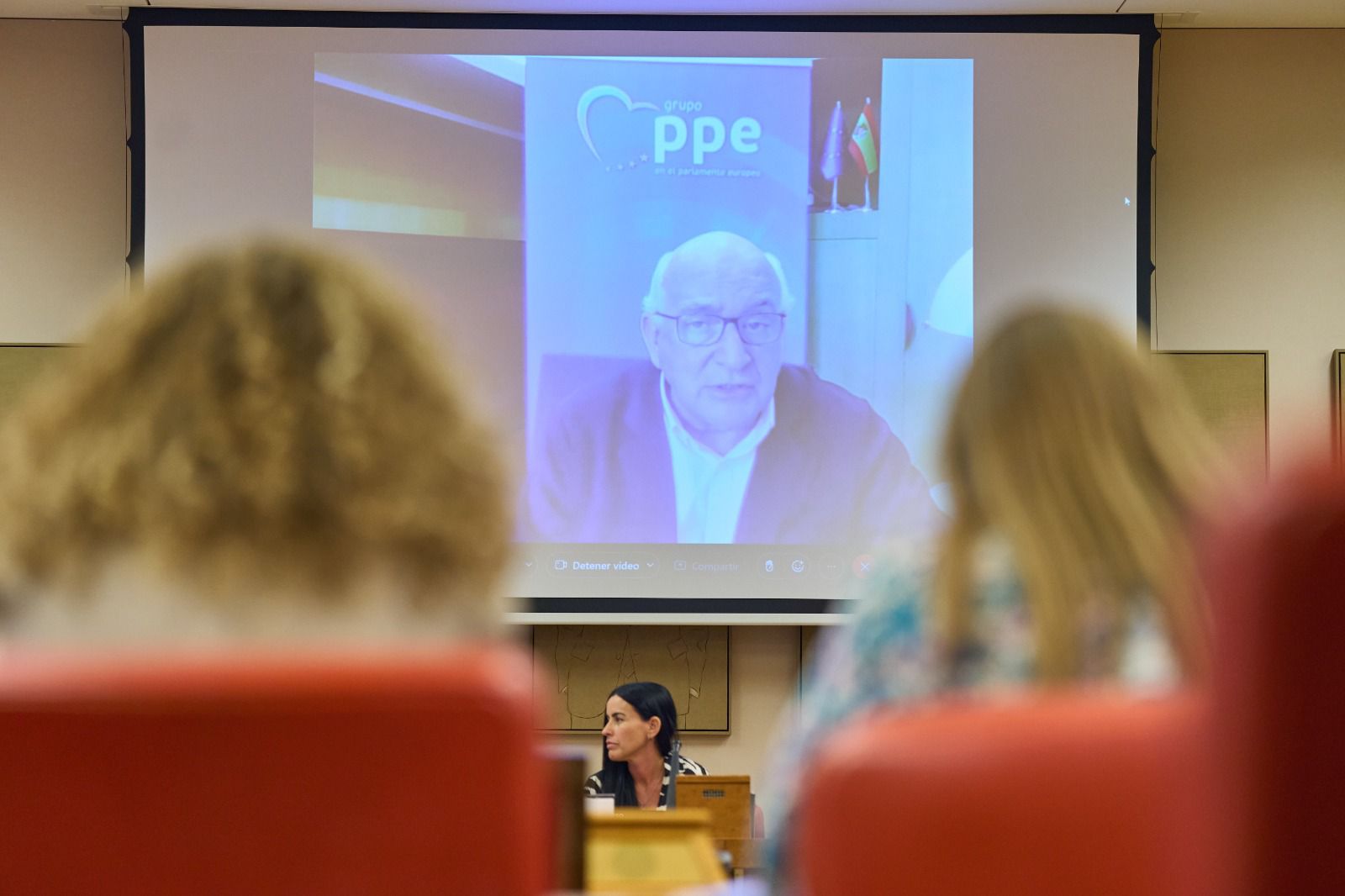PARLIAMENTARY SESSIONS ON THE PROTECTION OF MINORS ON THE INTERNET

On May 8, Javier Zarzalejos participated in a conference on the protection of minors on the Internet organized by the parliamentary group of the Popular Party in the Congress of Deputies.
The MEP considers that minors are the most vulnerable in the new digital environment and that a large-scale problem is emerging which requires a political, social and legislative response. In his opinion, we do not yet have the appropriate legal instruments to deal with this problem and progress must be made and a framework of demanding cooperation between the authorities and all technology companies must be established. It is in this context that the European Commission’s legislative proposal to prevent and fight against child sexual abuse content on the Internet, for which the MEP is the main rapporteur in the European Parliament, has arisen.

Zarzalejos referred to the latest report published by the Internet Watch Foundation (IWF) which states that, throughout the year 2022, this organization assessed more than 375,000 reports of images (videos or photographs) containing sexual abuse of minors, of which 250,000 were confirmed as such.
The MEP highlighted as a very worrying fact that, among these 250,000 confirmed reports, 199,000 dealt with content produced by the minors themselves, in most cases because they had been subjected to extortion or blackmail by sexual predators.
While the 11-13 age group accounts for the majority of such victims, the number of self-generated content among children in the 7-10 age group increased by up to 60% in 2022.
For food for thought at the European Union level, it is worth noting that of all the content analyzed by the IWF in 2022, 66% could be traced back to servers hosted in Europe, especially in the Netherlands, which unfortunately leads this ranking, Slovakia and Bulgaria.
This reality has led, in Zarzalejos’ opinion, the European Commission to take action on the matter and it has done so in the form of a regulation that provides for a uniform regulation for the entire European Union and which is articulated in four points. Firstly, a mandatory detection system for all Internet operators; secondly, a risk analysis of each of the services offered by these operators; thirdly, the implementation of measures to mitigate the risks detected and, fourthly and finally, the possibility for these companies to be subject to a detection order, issued by the competent judicial authority, which would oblige them to establish more specific measures and introduce more specific detection measures.
The European Parliament and the European Council are currently working on this proposal, which represents a major legal challenge within the very demanding data protection framework enjoyed by the European Union. “With the proper safeguards and with the appropriate judicial control, we must work and make progress in detecting and removing this content, but also delve into prevention and provide the necessary tools to young people. In short, this is an urgent response that we have to give from the institutions” concluded the MEP.
